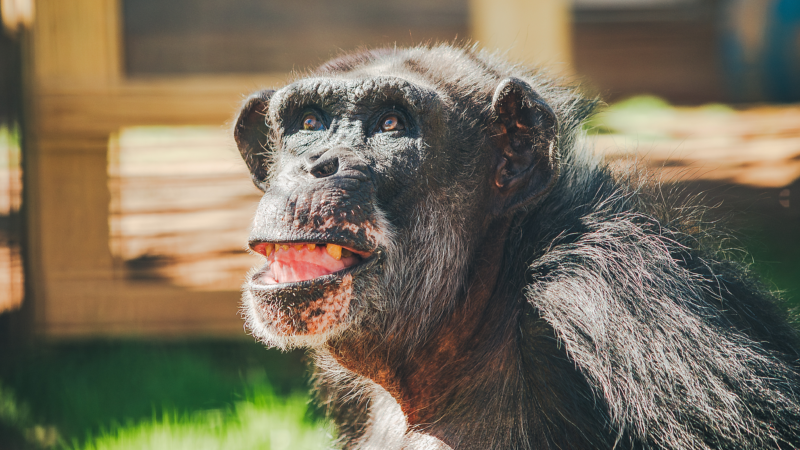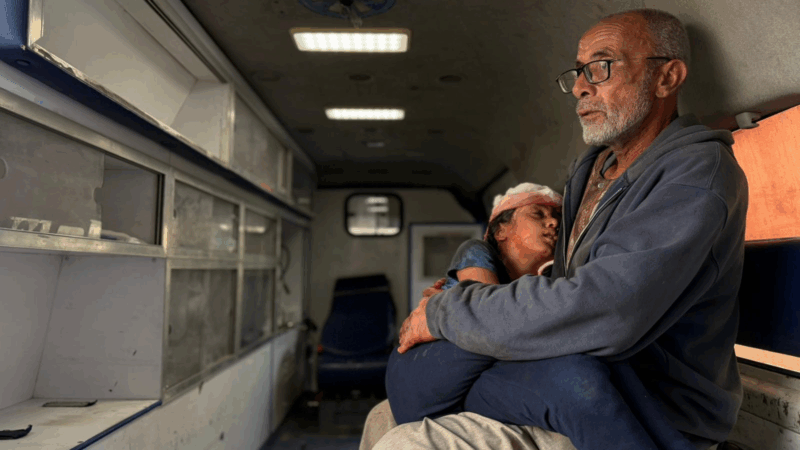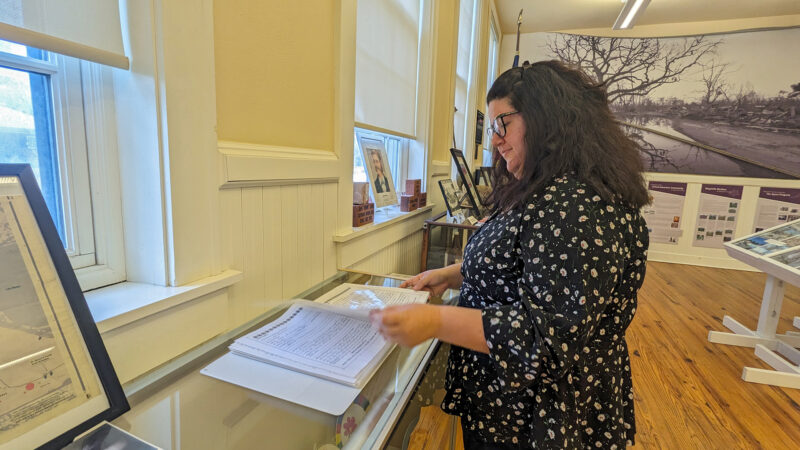Aging former research chimps move to Chimp Haven
Al and Kamaka, two old friends who are both in their 50s, are experiencing a whole new world.
Part of what’s novel: females.
“Right off the bat, they were just enamored with the ladies in the group,” says Rana Smith, the president and CEO of Chimp Haven in Louisiana, the federal sanctuary for former research chimps.
Chimp Haven recently welcomed these two male chimps and integrated them into an existing social group that includes a male called Tabu, along with four females. Tabu “doesn’t mind sharing his lady friends,” says Smith.
Both Al and Kamaka were born in the wild, but as far as she knows, in captivity, these two chimps “never experienced living with females before.”
Al and Kamaka used to be housed together as a pair at the Alamogordo Primate Facility on an Air Force base in New Mexico. They were part of a group of former research chimpanzees that remained there even after the National Institutes of Health moved many other retired chimps to Chimp Haven.
But over the last few months, 21 chimps have been moved from that facility. This took place over four different transports.
“There are no more chimps at Alamogordo,” Smith says.

Many of the Alamogordo chimps were in their 50s and 60s, with the same kinds of medical conditions seen in aging humans.
Previously, the National Institutes of Health, which is responsible for the chimps, had said that the animals left in New Mexico were too frail and unhealthy to risk making the trip.
That decision was challenged by some animal welfare groups, which said these animals deserved a shot at enjoying life in a more natural setting, among larger social groups.
Last November, the NIH reversed course, saying all of the Alamogordo chimps could go to Chimp Haven. That’s because officials learned that the chimps’ longtime caregivers in New Mexico were going to be retiring and the staff would be difficult to replace.
“It was a big surprise to receive word from NIH that they decided to transfer the remaining chimps,” Smith says.
One chimp, Patricia, wasn’t able to make it to Chimp Haven because she died during the transport process. Smith says it seemed as though the anesthesia was likely to blame.
“The rest of the chimpanzees were actually moved into their transport crates without anesthesia, and it was smooth sailing,” Smith says. “We didn’t have any additional issues. And all of those chimps are really doing well, settling in at Chimp Haven and just starting to thrive.”
Of the 21 new arrivals, five have been integrated into existing chimp groups at the sanctuary. The others are staying in a quarantine facility, awaiting the construction of new housing and outdoor yards.
The NIH stopped all invasive biomedical research on chimps about a decade ago.
Since then, almost all of the approximately 300 chimps owned or supported by the NIH have been gradually transferred to Chimp Haven.
A small number of NIH chimps remain at two primate facilities in Texas. A certain number are there because they’re bonded to a frail chimp. If they remain healthy, they should be eligible to go to the sanctuary once their friend dies, Smith says.
“Many of these chimps, including the ones that we just welcomed from Alamogordo, have spent decades in research,” Smith says. “We’re just so thrilled to be able to provide their happy ending.”
Inflation cools slightly in November as worries about affordability grip Americans
The cost of living in November was up 2.7% from a year ago, according to a report Thursday from the Labor Department. That's a smaller annual increase than for the 12 months ending in September.
New York has a new Archbishop. His background looks a lot like Pope Leo’s
Like Pope Leo, Bishop Ronald Hicks is an Illinois native with deep experience in Latin America.
Could international troops be sent to Gaza? Here’s why Trump’s plan hinges on it
President Trump's peace plan for Gaza hinges on international troops in Gaza, but Israel is skeptical and no country has yet agreed to send their soldiers.
RFK Jr. and Dr. Oz to announce moves to ban gender-affirming care for young people
Health Secretary Robert F. Kennedy Jr. is expected to announce a package of measures that would together ban gender-affirming care for minors. A press conference is set for 11 a.m. Thursday.
20 years later, Waveland’s letters to Santa tell stories of recovery from Hurricane Katrina
More than a thousand letters were written and answered after the hurricane. They’re now housed in an exhibit at the Ground Zero Hurricane Katrina Museum.
A new ‘Avatar,’ a marital stand-up story and a gut-wrenching drama are in theaters
A new drama uses the real, gut-wrenching recordings of a call for help from Gaza to tell a harrowing and profound story.









